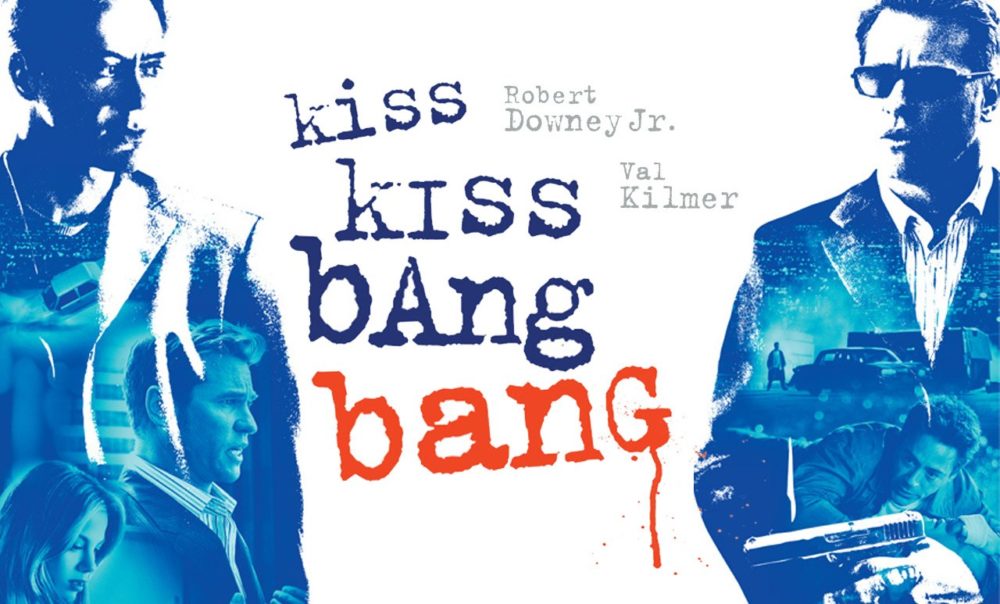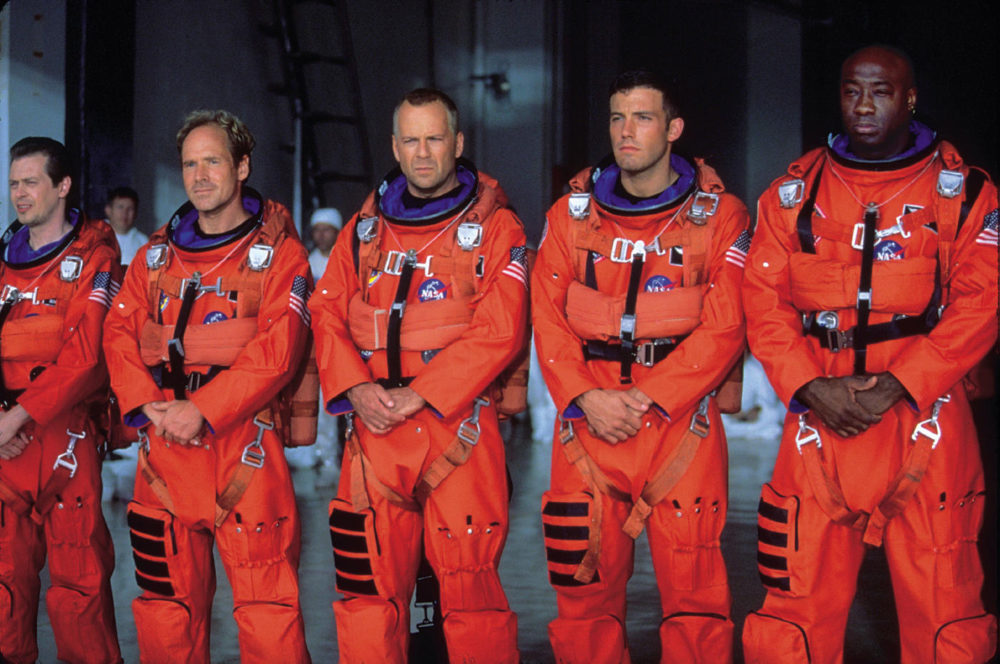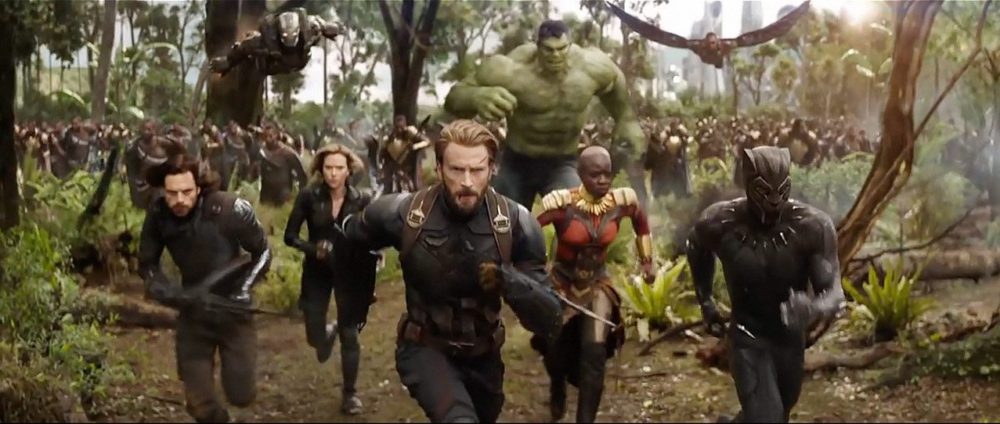I seem to spend a lot of time talking about the moral philosophy the world unconsciously
adopts from a steady diet of American entertainment lately in the Filmism.net Dispatch,
and I’ve noticed another peculiar facet of civic, social and political life Hollywood routinely
(and perhaps unconsciously) espouses.

It’s no secret when you consider the creative ethos the American movie industry was built
on. That ethos was parodied by critic Pauline Kael in her immortal line “Kiss Kiss Bang
Bang” (which later became a buddy action movie starring a pre-decline Val Kilmer and a
pre-second chance Robert Downey Jr, a classic example of the snake eating its own tail),
but the upshot of it is that America loves the socio-political notion of a fight.
To the American sensibility (as we see exported through a million artefacts of pop culture),
everything is a fight. To fight for something is one of the more treasured and sought after
states of moral being in the American psyche. Why else are war movies, sports movies
and so many other genres centred around fighting so popular? Even the superhero blockbuster movement the industry is currently in thrall to is about fighting whatever hot-
swappable CGI cosmic villain various Avengers or Justice Leagues come together to defeat.
In fact, fighting is such a spiritual imperative it takes on outsized importance. Just look at
the trailer for Creed 2, in which Adonis Creed (Michael B Jordan) says outright “this is
more than just a fight”. Even fighting for it’s own sake, in the case of boxing, is elevated to
something with higher aspirations and stakes.
And in even more tried and true Hollywood style, Creed 2 is a classic “this time it’s
personal” moment when we discover Adonis will be apparently fighting the progeny of
Ivan Drago, the Russian monster who killed his father in the ring in Rocky IV back in 1985.
And it’s the closing of a neat cycle because that film featured a fight as a parable of a
fight, one of the most overt expressions of conflict as a subtext for geopolitics of the
modern entertainment era. Rocky versus Drago was as bald-faced a metaphor for the
Cold War as Gen Xers like me had ever seen on screens, and even though Rocky
exhorted the crowd and the world watching to ‘change’ in order to avoid nuclear
armageddon, it’s crucial that, as a stand in for America, he won before his gracious call
for peace.

Speaking of Armageddon, Michael Bay’s 1998 interplanetary smash-em-up was a good
example of America’s constant battle stance. At one point, trying to convince the powers
that be at NASA to give the drilling crew a weekend off to enjoy themselves before the
mission, Harry (Bruce Willis) warns them thus; “what if they get up there and they forget
what they’re fighting for”.
As a reasonable response might have asked; fighting? They’re not fighting anything,
they’re trying to blow up a rock. In America’s constant desire to right wrongs through
force, Bay’s scriptwriters (JJ Abrams and Joss Whedon among them) seemed to forget that the enemy wasn’t a bloodthirsty conquering Nazi, Soviet, terrorist or machete-wielding serial killer… it was a rock, with no conscious intent to harm Americans or destroy the American way of life.
But such a constant mentality to be ready to fight seems to have leached its way into
every corner of pop culture. I happened to be walking through the room while a former
flatmate was watching one of Gordon Ramsey’s cooking shows. He was meting out the
abuse to some underling that seems to be USP for his whole appeal, throwing their
efforts into the bin and spitting venomously at them to “get out”.
The crushed acolyte dutifully did so, holding back tears, and was immediately
encouraged by the host who stands off to the side of the kitchen to “get back in there and
fight”. Fight what, I wondered? Punch Gordon Ramsey across the jaw (seems a
reasonable response to most of what that guy says, actually)? Or go and cook something
else.
As a society, is America (and by extension the rest of us, thanks to such effective cultural
transmission) so eternally spoiling for psychological, military or physical violence that
walking back into a kitchen to cook a dish for a second time can be termed ‘fighting’?
Nitpicking, you say? Taking phraseology dreamed up by screenwriters and reality TV
producers too seriously, you think? Maybe, but I think there’s a more insidious side to it.
As one of the trendy soundbites from the social media echo chamber of recent times
would have us believe, words matter.
The idea everything’s a fight to be fought digs subtly but deeply into our collective
consciousness through simple repetition (see Goebbels). It’s found everywhere from trash
TV to political discourse, and it’s got the most military powerful nation on Earth and most
of its population on a constant war footing.

Everyone else on Earth knows the American propensity to loudly and aggressively stand
up for what they see as their rights very well, and it’s a good thing to do so. Or is it, when
that sensibility is steered down a path that puts the individual and international
consciousness on constant readiness for a fight?
It’s a little bit funny when you see it at the supermarket deli counter from people who feel
like waiting their turn is a violation of their constitutional rights as Americans, one they’ll
loudly and proudly rail against. Less so when you see it from an entire political firmament
that controls the most destructive military weapons in existence. Or am I reading too much into it?
I was dispirited and expecting the worst recently when I called up a werewolf movie I’d
put in my Netflix queue called Werewolf: The Beast Among Us. After just about every
werewolf movie since An American Werewolf In London and The Howling (with the
exception of Dog Soldiers), it seems good werewolf movies are like original properties or
executives that got into it for the art in movies.
It wasn’t great but you know what? If you pine for a good werewolf movie as much as I do
it was actually a fun if cheesy thrill ride that really embraces some corny genre motifs.
In documentaries, you’ve probably never heard of Calling All Earthlings. But there’s a
strange constructed object in the middle of the California desert that’s the focal point for
a grab bag of 50s Cold War UFO alien contact cliches, and it’s just as much fun as
anything a writer might make up about the same subject.







